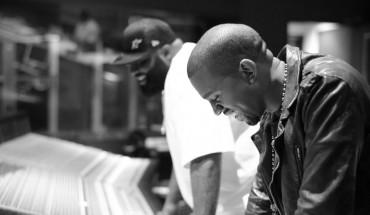The erudite ‘Rebel Yeller’ begins his tome with a reference to his motorbike crash in 1990 at the age of 34, following the success of his aptly named Charmed Life album. Speeding and racing (in more ways than one) on his motorbike through Los Angeles in his double-denim garb he gets hit, bringing to an end years of hedonism, debauchery, orgies, the epitome of that old Blakean chestnut about the “Road of excess leading to … clichés galore”, yet also a reminder of the allure of rock and roll, a cultural genre bleached of dirt and grime nowadays. The tone is set; not the first or last time he’ll be “held accountable and asked to pay a heavy price”. Oh Billy, what else have you done/to do?
William Broad, of Anglo-Irish parentage, moved to the US in 1959 at the age of four. He was seen as an “English fop” and ideally positioned to witness first-hand the now obligatory contrast between monochromatic Britain and the wondrous Technicolor (sic) land of plenty, with its dichotomy between its see/want/buy culture versus orchestrated Cold War paranoia and a Hollywood-ised version of history.
Moving to the South East of England when he was eight, his sense of dislocation and wanderlust was ingrained like most youth of any era. His entry into an understanding of existence (and an escape route) came through music, television and books. Feeling trapped and bound by “normality” he seeks escape through being in a band, following Jim Morrison’s dictum of “Follow your own course, be the captain of your soul”. He doesn’t let Jim down.
Idol is excellent at capturing the thrills and spills of the emergence of punk, the seismic energy and need to break free from the confines of the past (parents or the dominant rock dinosaurs) and the social decay and unrest prevalent in Britain in the “futureless” 1970, which inspired the need to rip up the past and start again. Identifying and joining like-minded contemporaries (the soon-to-be ‘Bromley Contingent’) Idol is especially laudatory regarding John Lydon, Siouxsie Sioux and Generation X co-founder Tony James, with whom he helped get punk haven The Roxy off the ground to provide an arena for the nascent punk acts.
Where the book is awkward (and there’s quite a bit) is when Billy goes into Jackie Collins bonkbuster mode with his descriptions of sack time seemingly after the ‘Bad Sex’ award: “As orgasm boiled over, I would pop an amyl nitrate and soar to that sweet spot that intensifies the growing explosion of chemistry between two lovers entwined like vines, curling together, disappearing into each other… writhing, sighing and groaning, soaring into heaven, only to lowly burn out and return to Earth, spent but somehow wanting more.” Pass the bucket on the left hand side…
A dominant topic throughout is his on/off love affair with Hot Gossip dancer Perri ‘The Stony-Eyed ‘Medusa’, yet even she comes second best to the narc world, with Billy perennially playing away: “Sometimes when opportunity stares you in the face, you take solace in somebody else’s sheets.” His schizo-actions brilliantly are encapsulated in ‘Eyes without a face’.
Despite becoming a father, he comes undone by being overheard through a baby monitor expressing his urges to another. Schoolboy error, Billy. However, his self-sabotage is only restricted to his personal life; his career hardly suffers. When Generation X split as a result of Idol’s sixth sense that a new episode was looming, he writes “a travelling salesman goes where the work is” in his best Willy Lomanese. He returns to his spiritual home of Shamerica and seeks to exploit its opportunities of plenty and excess, biding his time until he hits big, off-setting the whirlwind that envelops.
Moving to the “future world gone wrong” dystopia of New York just as the glitzy 80s are underway, he wastes no time in getting wasted. Soon, his druggie alter ego ‘Zool’ is perpetually crying ‘More, more, more.’ He has an amazing propensity for being in the right place at the right time, be it the new MTV channel showing his video for ‘White Wedding’ every hour, attracting a new generation of listeners/consumers, or the emergence of the Sony Walkman. Billy Idol had arrived.
There are some great revelations in Dancing With Myself, such as Billy’s audition for the part of T1000 in Terminator 2 (curtailed due to his inability to run post-accident), and a good summary of his much maligned (yet prescient) Cyberpunk album from 1993, which came as a floppy disc and foresaw the pervasive techno-society we now exist within. Although clunky in parts, and with the final chapters flagging as his career does, the book is a classic tale of rock and roll, hard work, struggles with identity, belief, excess, fortune and favour, hubris, regret and ultimately redemption.
Kemper Boyd
@dissapointon





